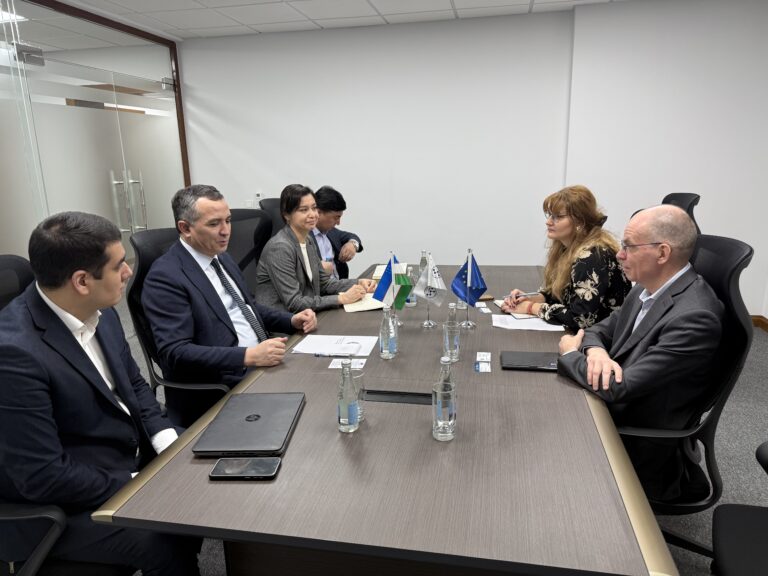On February 12, 2025, a meeting was held between Abduvakkosrafikov, chairman of the Industry, Radiation and Nuclear Safety Committee under the Ministers of the Republic of Uzbekistan, and the Regional Secretary of Chemicals, Central Asia. I did. Wim Riepma, Head of Cooperation with the European Union-funded Excellence (COE) Biological, Radiologic, and Nuclear (CBRN) Risk Reduction Centre and the EU’s Delegation to Uzbekistan.
The discussion focused on Uzbekistan and on strengthening cooperation in reducing CBRN risk across Central Asia. Both sides highlighted the importance of regional collaboration, capacity building, and implementation of effective strategies to address CBRN threats. During the meeting, it was emphasized that the impact of the EU CBRN COE initiative is beyond immediate risk mitigation, contributing to peace, stability, safety and safety.
Ongoing projects based on the EU CBRN COE initiative in Central Asia include capacity building and specialized training for national experts, and the development of comprehensive strategies to effectively manage CBRN risks and threats. Includes support for. These efforts are tailored to meet the specific needs of Central Asian countries in line with European best practices. The dialogue also explored opportunities for further technical support, knowledge sharing and joint initiatives to enhance resilience to CBRN risk.
The conference highlighted the ongoing partnership between Uzbekistan and the European Union in promoting regional stability and security through effective CBRN risk management.
Background information:
The EU CBRN COE initiative is a global initiative funded and implemented by the European Union as part of its goal of promoting peace, stability and conflict prevention.
The aim of this initiative is to follow a voluntary, demand-driven approach to mitigate risks and enhance all hazard security governance in EU partner countries. EU Support is committed to implementing a wide range of CBRN risk mitigation activities, including needs and risk assessments, national and regional action plans, capacity building activities, legal framework reviews, tabletop and real-time (including cross-border) field exercises It will be provided. – Regional exchange of best practices and lessons learned.
Funded and implemented Neighborhood, Development, International Cooperation Equipment (NDICI) – Global Europe, this initiative is led by the European Commission Foreign Policy Instruments (FPI) Servicesand cooperate closely with European External Action Services (EEAS). European Commission Joint Research Center (JRC) We provide technical support to partner countries, United Nations Interregional Crime and Judicial Research Institute (Unikuri)


